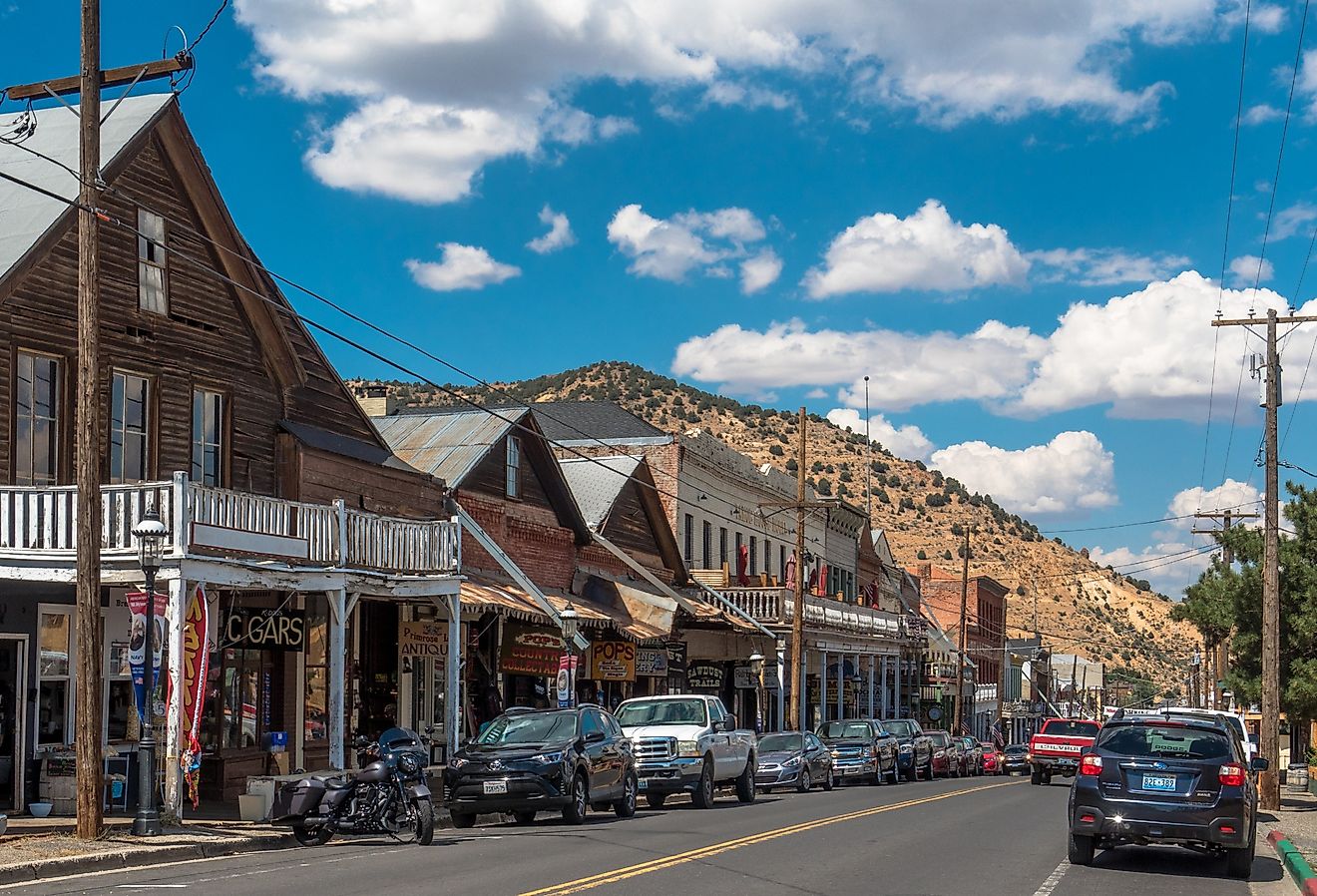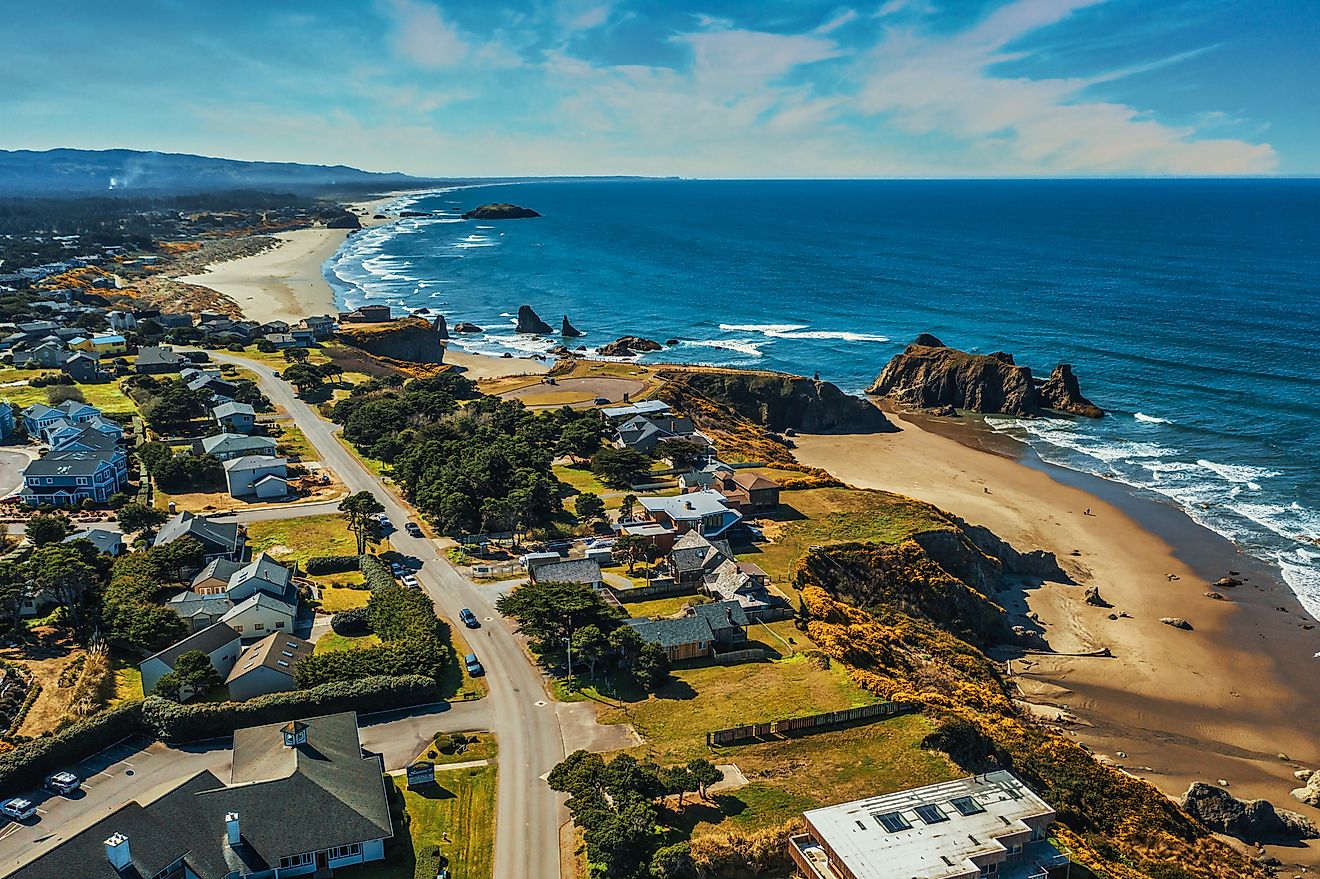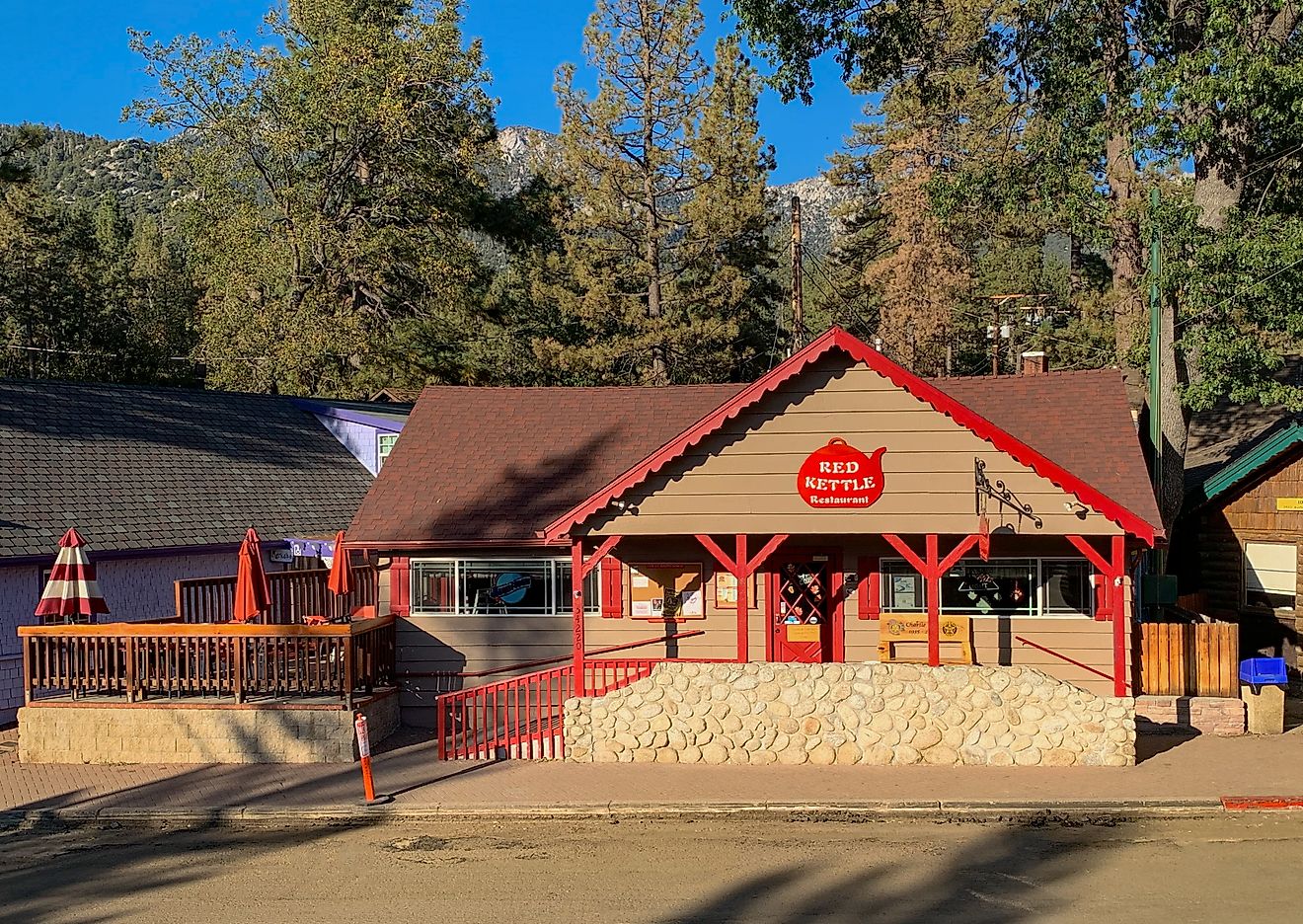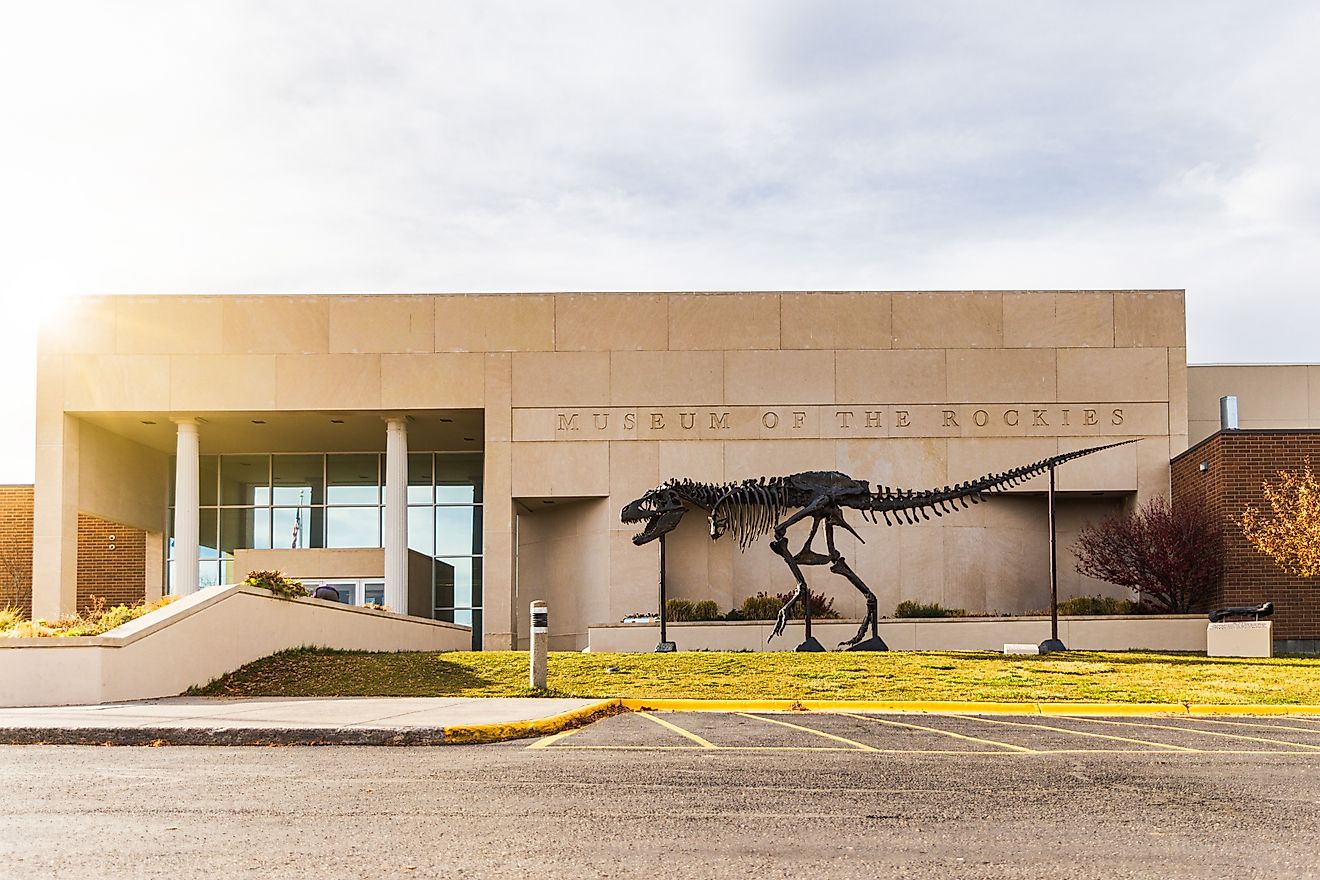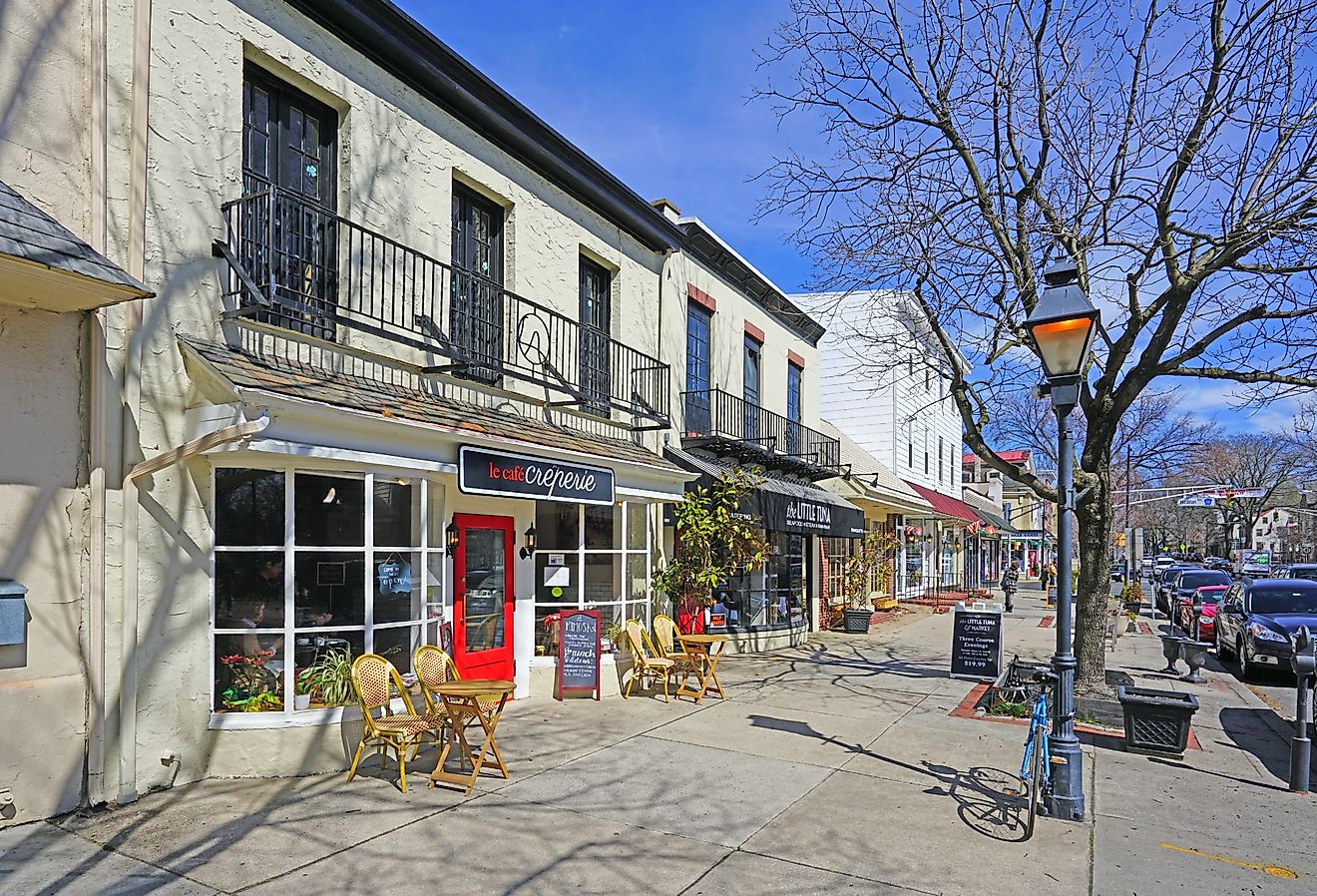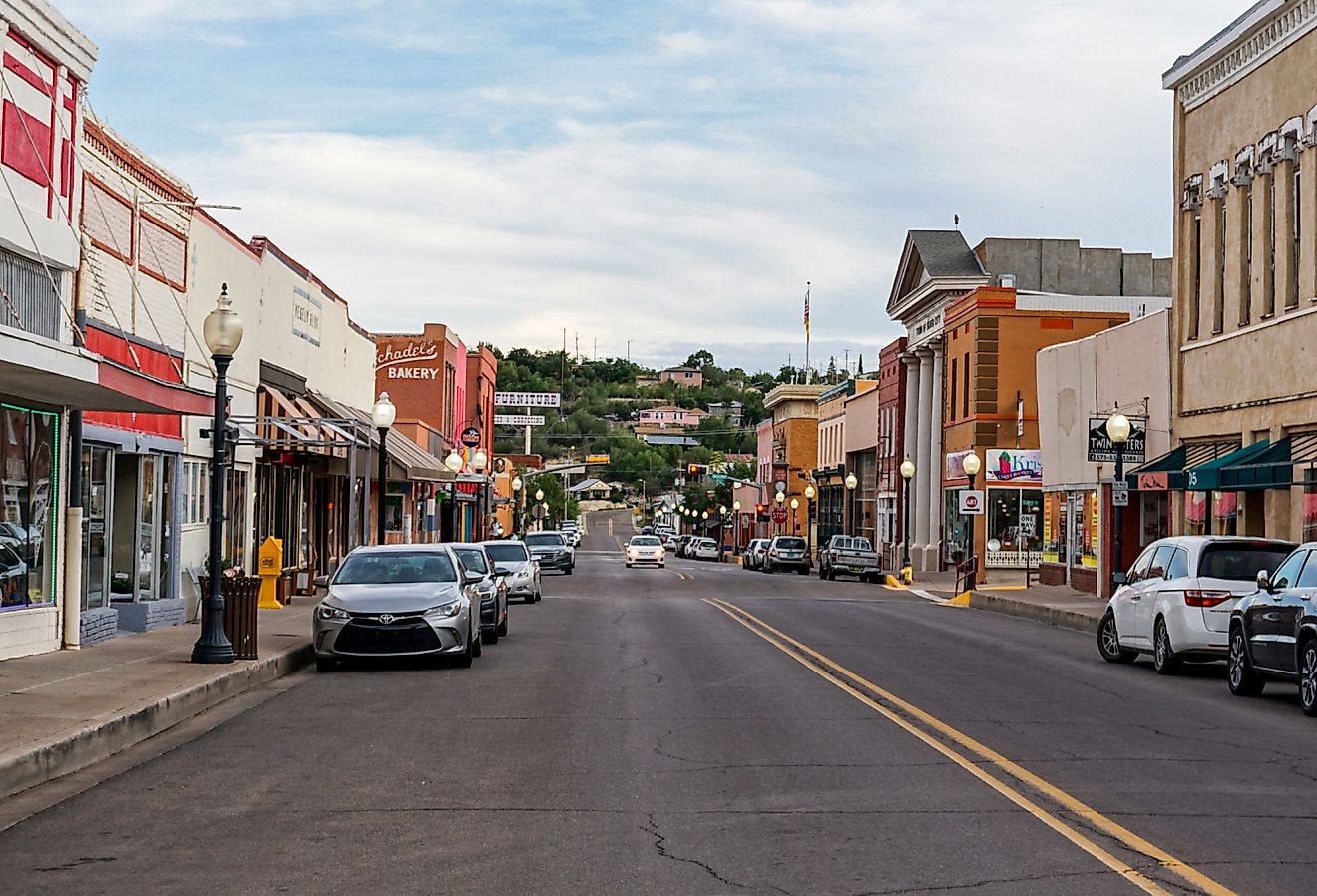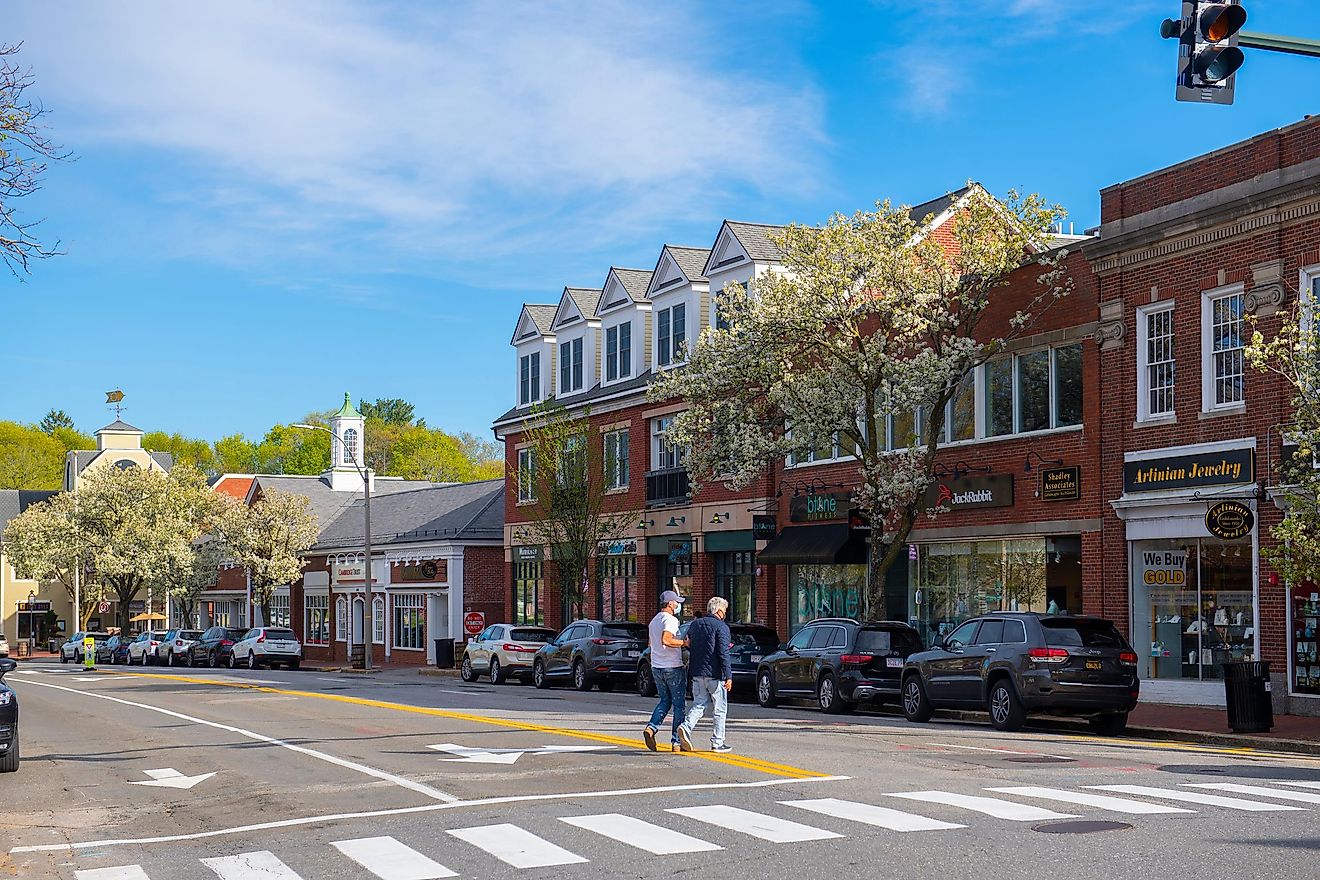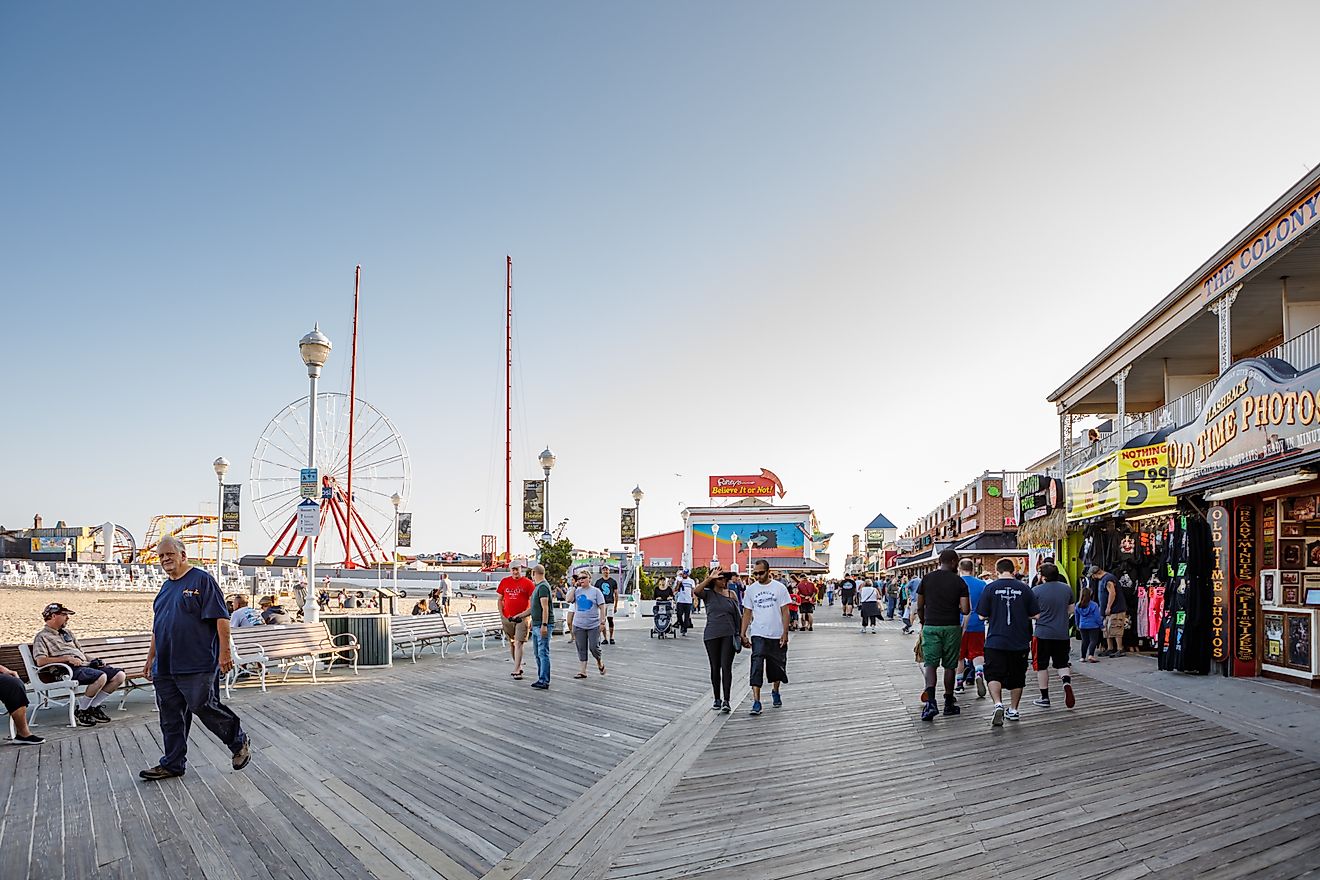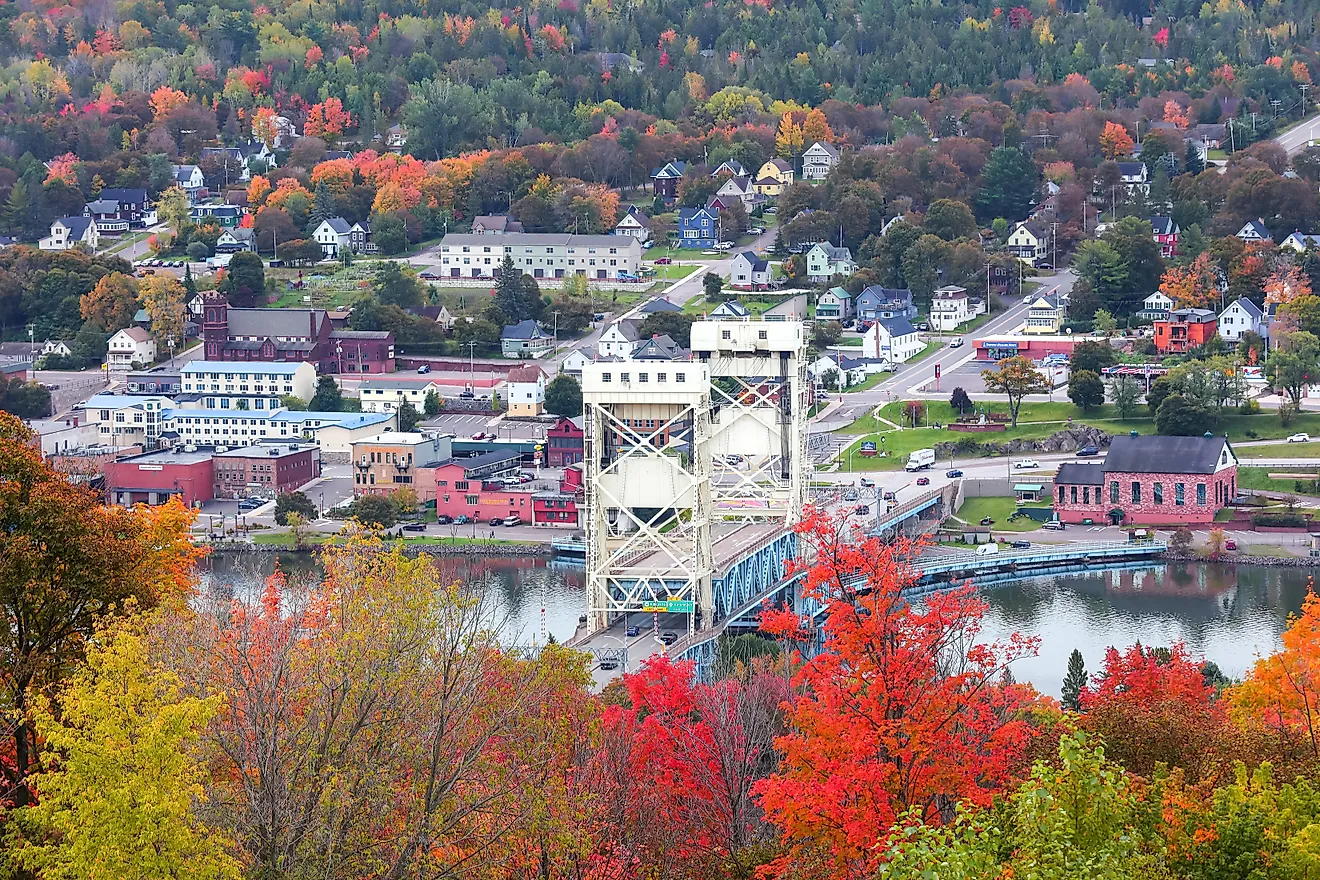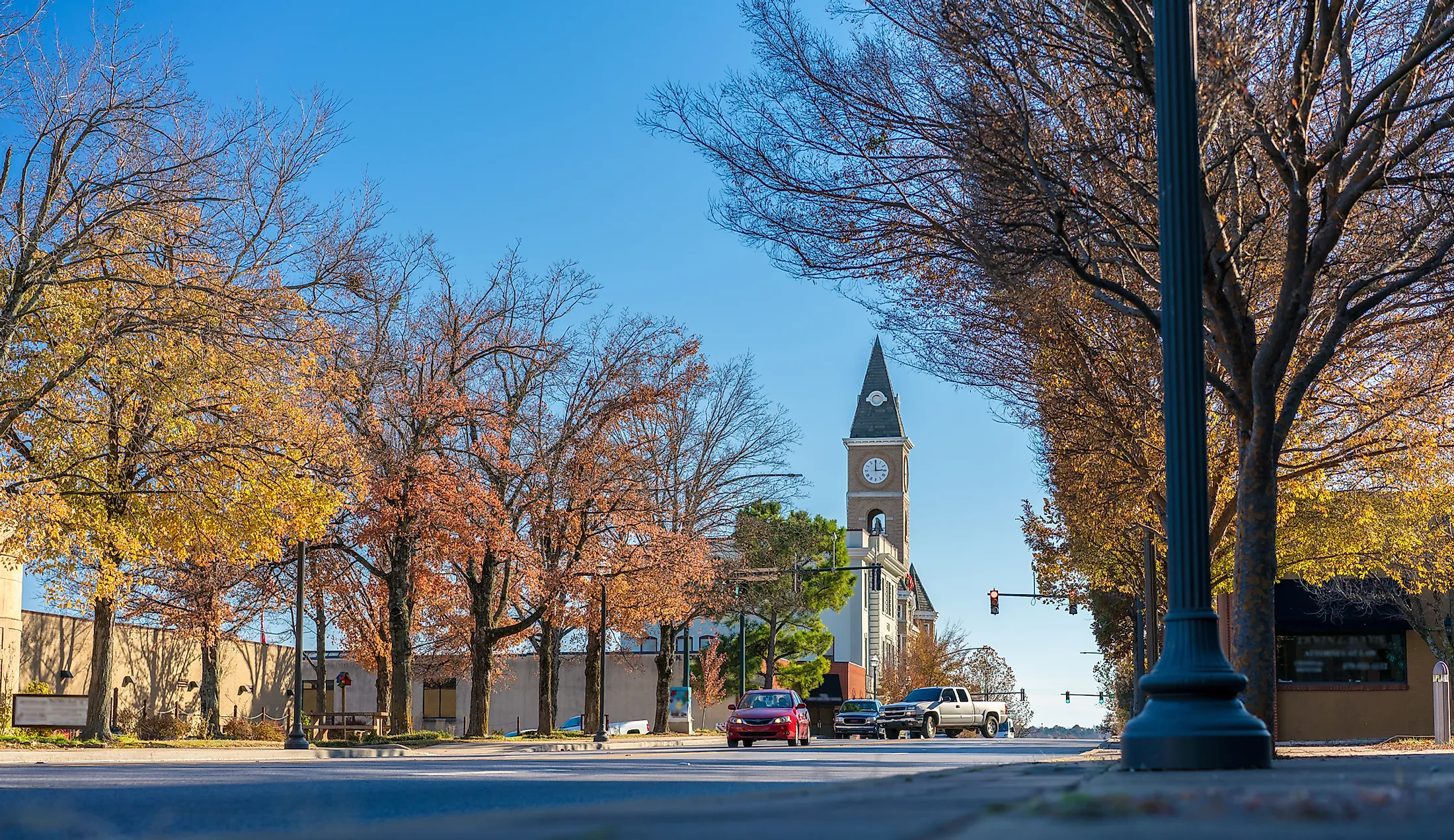
Fayetteville, Arkansas
Fayetteville is a large city situated in the heart of Washington County in the northwestern region of the US State of Arkansas. It is the largest city in Northwest Arkansas and the second-largest city in Arkansas. The city is best known as the home of the flagship campus of the University of Arkansas, which is one of the nation’s top public research and academic institutions. Due to the success of the cross-country track and field programs of the University of Arkansas, Fayetteville is often nicknamed as the “Track Capital of the World.”
Geography Of Fayetteville
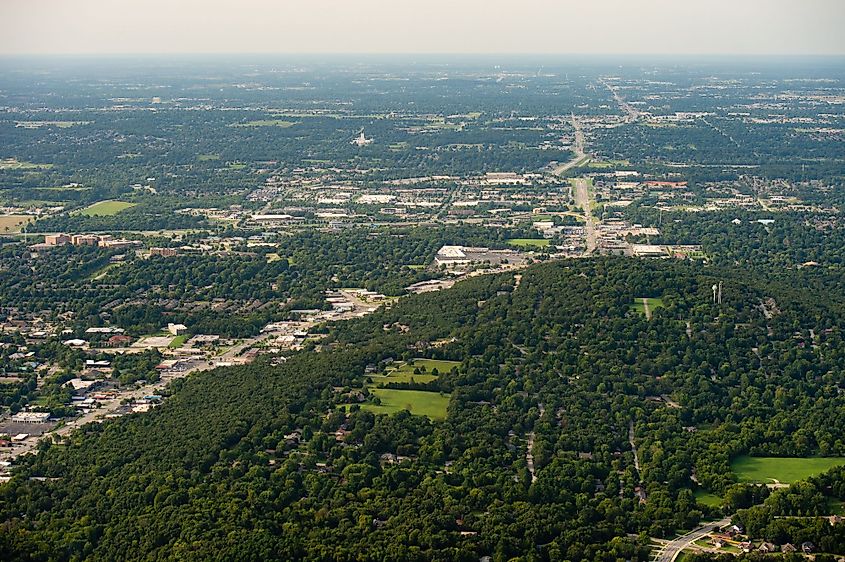
The city of Fayetteville covers a total area of 142.6 sq. km, of which 3.6 sq. km is occupied by water and 139 sq. km is occupied by land. The Interstate 49/US Route 71 is the only fully controlled access route that passes through the area. Fayetteville is bordered on the north by the cities of Johnson and Springdale, whereas on the south, the city opens up to a scenic countryside located along the Boston Mountains Scenic Loop. The city of Farmington is located on the west of Fayetteville, while an undeveloped land is located on the eastern side.
Geology Of Fayetteville
Fayetteville is situated in the Boston Mountains which is a part of the Ozarks that runs through the northwestern part of Arkansas, the eastern part of Oklahoma, and the southern part of Missouri. Geological studies have revealed that the rocks of the Boston Mountains were formed during the Pennsylvanian period when sandstones and shales were deposited on the Springfield Plateau. In the Fayetteville area, these sediments were eroded during the Ouachita orogeny and uplift to expose the plateau’s Mississippian limestone formations. To the south of the city, the steep Boston Mountains are formed by the remaining Pennsylvanian sediments. A geologic formation known as Fayetteville Shale, situated in the Arkoma Basin of the US States of Oklahoma and Arkansas, is named after the city of Fayetteville. This shale requires hydraulic fracturing to release the natural gas that is contained within it.
Climate
According to the Köppen climate classification, Fayetteville experiences a humid subtropical climate with hot summers and cold winters. The hot season lasts from June to September, with July being the hottest month, having an average high temperature of 31.5°C and a low temperature of 20.8°C. The cold season lasts from November to February, with January being the coldest month, having an average low temperature of -2.8°C and a high temperature of 8.1°C. Summers and winters are drier, with most precipitation during the spring and fall seasons. The city receives an average precipitation of 46.28 inches per year.
Population Of Fayetteville
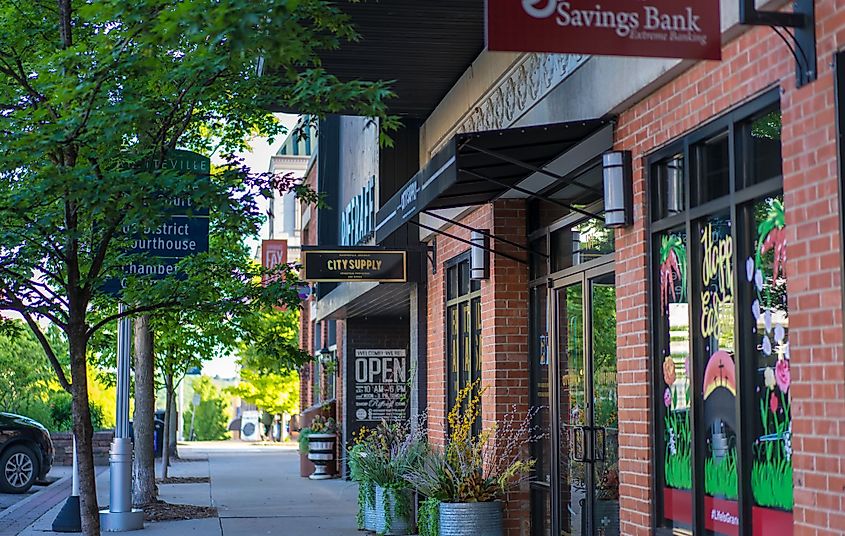
Fayetteville is the second-most populated city in Arkansas, and as per the latest 2020 United States Census, about 93,949 people live in the city of Fayetteville. The city’s population has increased since the 2010 census, which showed that the city was home to 73,580 people. About 73.69% of the city’s population is considered White, followed by the Hispanic group at 8.6%, others at 6.76%, African Americans at 6.34%, Asians at 3.18%, Native Americans at 0.93%, and Pacific Islanders at 0.5%. As of 2019, about 6.82% of the city’s residents were born outside the country. The most common birthplace of the foreign-born residents of Arkansas was Mexico, followed by El Salvador and India. The census also revealed that there are 36,705 households with a median household income of $43,690 and a median property value of $207,600. The average car ownership in the city was two cars per household.
Economy Of Fayetteville
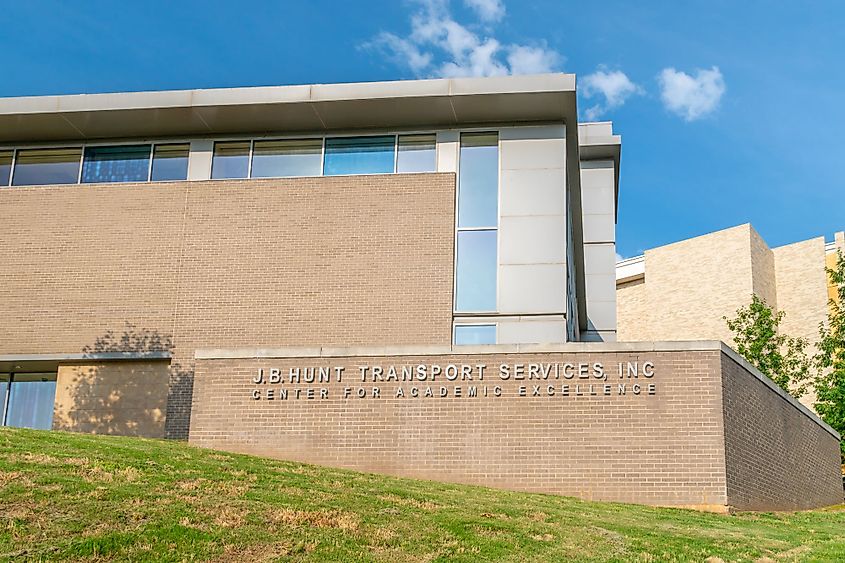
Dillard’s, J.B. Hunt, Murphy Oil, Tyson Foods, Walmart, and Windstream are the six Fortune 500 companies based in Arkansas. These companies have a significant impact on the economy of Fayetteville through the University of Arkansas. In addition to this, the city's local economy is also driven by farm-based industries, food processing industries, and clothing and manufacturing industries. Some of the top employers in the city of Fayetteville include the University of Arkansas, Washington Regional Medical Center, Veterans Health Administration, Washington County Government, Fayetteville School District, Arvest Bank, etc.
Tourist Attractions In Fayetteville
University of Arkansas Campus Historic District
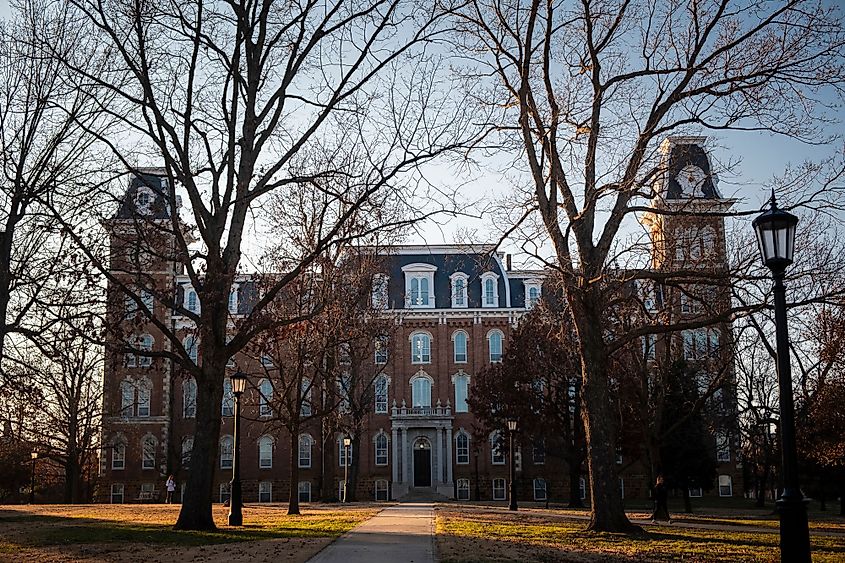
The city of Fayetteville is best known as the home of the flagship campus of the University of Arkansas, which is one of the nation’s top public research and academic institutions. Listed on the National Register of Historic Places, the University of Arkansas Campus Historic District is spread over 0.28 sq. km area and contains about 25 buildings that form the historic core of the campus of the University of Arkansas. Some of the buildings included in this historic district include Old Main, Ella Carnall Hall, Original Chemistry Building, Agriculture Building, etc.
Walton Arts Center
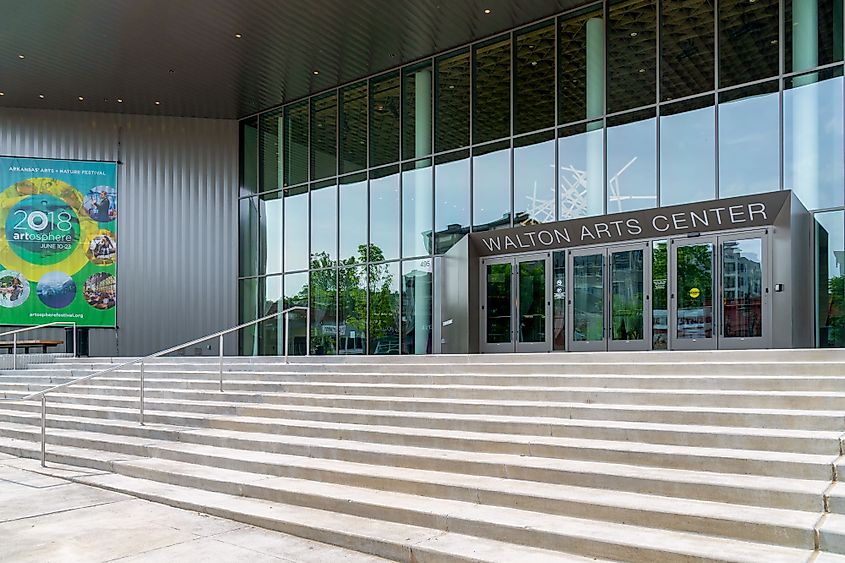
Located close to the University of Arkansas campus in the city of Fayetteville is a performing arts center named as the Walton Arts Center. Throughout the year, this center hosts several theatrical performances, musicals, dance, conferences, and other special events that are performed by many world-renowned artists. The Walton Arts Center serves as the principal cultural center for the entire Northwest Arkansas region.
Fayetteville Historic Square
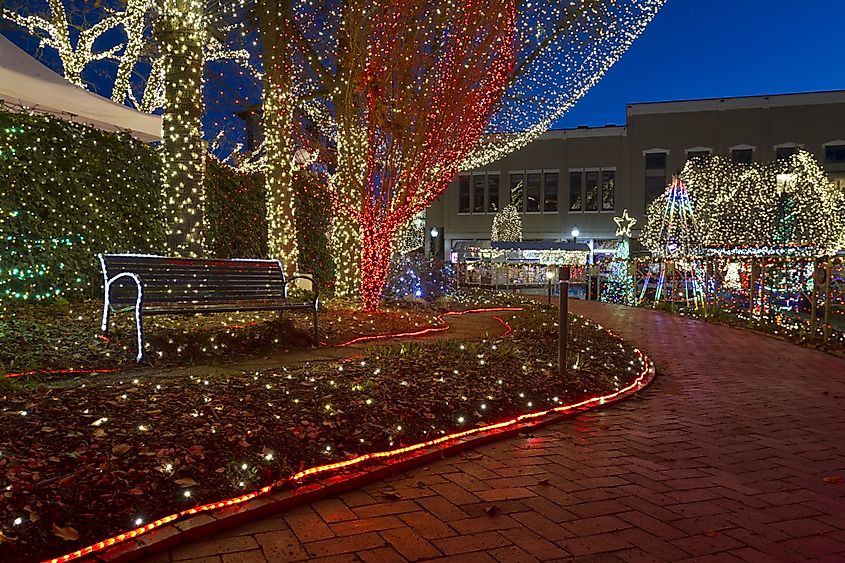
The Fayetteville Historic Square forms the heart of the city of Fayetteville and features many historic buildings besides boutiques, museums, restaurants, music venues, and convention centers. This historic district is surrounded by Block Avenue in the west, Center Street in the north, East Avenue in the east, and Mountain Street in the south. The Fayetteville Historic Square also serves as a venue for many events, including the Lights of the Ozarks Festival, Block Street Block Party, Fayetteville Farmer’s Market, etc.
Wilson Park
Spread over an area of 22.75 acres, Wilson Park is the first and the oldest park in the city of Fayetteville. At present, the park features a swimming pool, picnic areas, an ancient castle, two playgrounds, a baseball field, and courts for tennis, basketball, and volleyball. Located directly south of Wilson Park is the Wilson Park Historic District, which includes about 47 buildings that have been constructed during the late 19th and the beginning of the 20th century.
Brief History Of Fayetteville
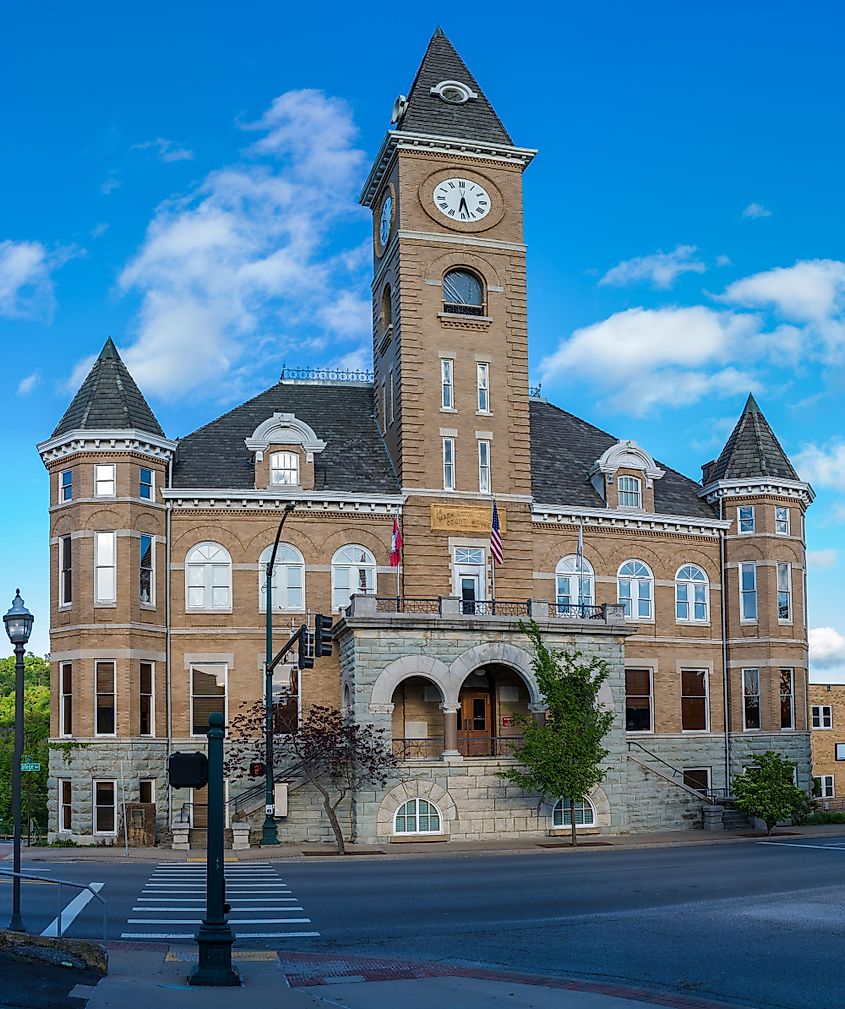
The Native Americans initially occupied Fayetteville along with the rest of the Ozarks region. The Osage Indians used the area as a hunting ground that was later inhabited by the Cherokee. In the mid-1820s, the first permanent settlers came to the area. In 1828, George McGarrah and his family settled near the Big Spring and founded the town of Washington. On October 17, 1828, the Washington County was established, and the town of Washington became the county seat. The construction of the Washington Courthouse was completed in 1829. However, Postmaster Larkin Newton ordered the renaming of the Washington Courthouse to Fayetteville Courthouse to avoid confusion arising from another town in Hempstead County that was named Washington. On November 3, 1836, Fayetteville was officially incorporated as a town. A city charter was obtained from the State Legislature in 1859. Fayetteville suffered greatly during the American Civil War, and on February 18, 1862, Fayetteville was occupied by the Union forces. The Battle of Pea Ridge and the Battle of Prairie Grove were fought close to Fayetteville. On April 18, 1863, the Battle of Fayetteville was fought between the Confederate and the Union forces. In 1870, Fayetteville was reincorporated as a town, and in 1906 it was officially incorporated as a city.
